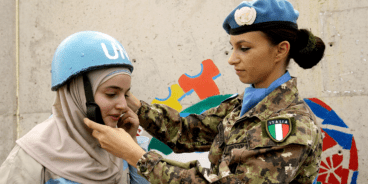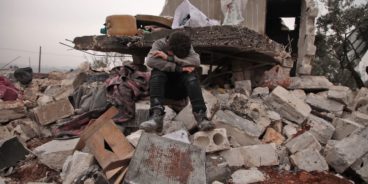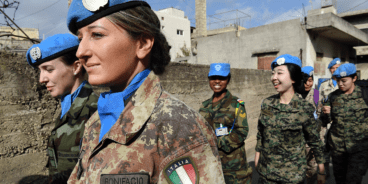
Statement on the International Day of UN Peacekeepers, 2017
On this International Day of United Nations Peacekeepers, the Global Centre for the Responsibility to Protect pays tribute to UN peacekeepers deployed around the world and recognizes the sacrifice of those who lost their lives in the service of peace and the protection of civilians.
The UN currently deploys more than 113,000 military, police and civilian personnel across sixteen missions on four continents. As we recognize the International Day of UN Peacekeepers we recognize that peacekeepers are increasingly called upon to uphold the international community’s Responsibility to Protect civilians from mass atrocity crimes; namely genocide, war crimes, ethnic cleansing and crimes against humanity. Ten current UN peacekeeping missions have Protection of Civilians mandates, which involve approximately 95 percent of all UN peacekeepers.
The theme of this year’s commemoration, “Investing in Peace,” highlights the critical and diverse role that UN peacekeepers play, which ranges from promoting the rule of law and supporting fair elections to disarming ex-combatants and protecting human rights. The Global Centre is especially honored to announce that it will be working in partnership with the government of Canada on a major project to help institutionalize pre-deployment training for peacekeepers on R2P and mass atrocity prevention at various peacekeeping training centers around the world.
The complexity and intensity of many current armed conflicts underlines the continuing relevance of the recommendations of the 2015 High-Level Independent Review Panel on UN Peace Operations (HIPPO) as well as the Kigali Principles on the Protection of Civilians. The HIPPO recommendations and Kigali Principles offer practical ways to address current challenges in peacekeeping. We commend the 40 states that have endorsed the Kigali Principles, and encourage all other troop contributing countries to do so.
Finally we sadly acknowledge that last year 117 peacekeepers lost their lives while on active duty. Thirty-three of these peacekeepers were killed in “malicious acts,” including twenty-seven in Mali (MINUSMA), two in Central African Republic (MINUSCA) and two in South Sudan (UNMISS). Another five MINUSCA peacekeepers were killed in a single attack earlier this month. Attacks on UN peacekeepers constitute war crimes. Those who incite or perpetrate these attacks must be held accountable under international law.
Dr. Simon Adams, Executive Director of the Global Centre for the Responsibility to Protect, noted that, “Today we acknowledge that in too many parts of the world, the presence of a blue helmet can still mean the difference between life and death for vulnerable civilians. Every day UN Peacekeepers uphold the international community’s responsibility to protect through both conflict prevention and civilian protection. The world is a safer place because of their efforts.”
Related Content


Civil Society Statement on the Protection of Civilians in Armed Conflict (2021)
